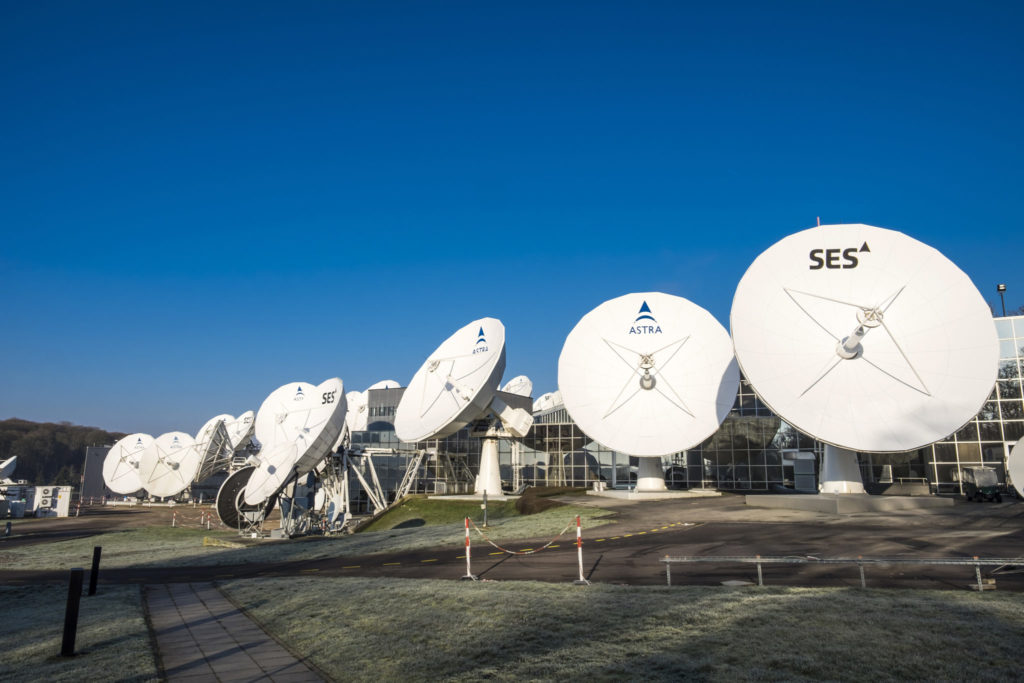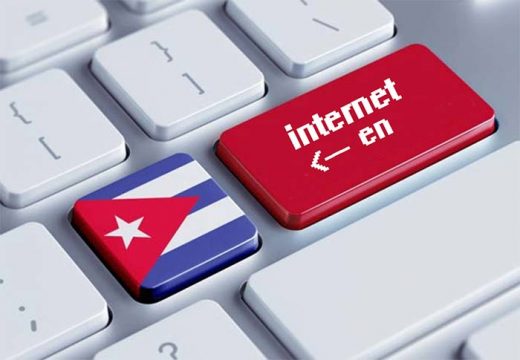State-owned ETECSA, a Cuban telecommunications monopoly, signed a satellite services agreement with Luxembourg-based SES Networks to increase the island’s internet connection capacity, official media reported on Monday.
The satellite connection will complement the fiber optic connection that is already used in Cuba and whose network is being expanded in the last year, within the plans of the island’s Government to extend Internet access in which until now it remains as one of the most disconnected countries in the world.
The agreement signed with the European company will allow Cuba to use “a high capacity orbit satellite service very similar in some quality parameters to fiber, guaranteeing additional capabilities that support the internet service for users,” state agency Prensa Latina.
SES Networks explains that “it is one of the leaders in the global satellite communications market” and provides services to content providers, the internet, fixed and mobile network operators, governments and institutions. ”
This agreement comes a few weeks after the United States announced the creation of a working group (Cuba Internet Task Force, according to its official name) to expand free Internet access on the island, an initiative that the Cuban authorities have vehemently rejected. to consider it subversive and interventionist.
Etecsa opened several public Wi-Fi hotspots since July 2015, which now totals more than 500 throughout Cuba.
And recently, it began the commercialization of Nauta Hogar packages to connect from the houses, a service that by December had already contracted some 11,000 homes.
For this year the state company has announced that it will start offering 3G connection from mobile phones and also works on the implementation of mobile banking services.
The prices of Internet access have also dropped steadily in the last three years ($ 1 per hour of connection), but they are still very high for the average salary of about $ 30 per month that a state worker in the country receives.
The prices of the program Nauta Hogar to have connection in the housing range between 15 and 70 dollars – depending on the speed – for 30 monthly hours.
MONOPOLIO ESTATAL CUBANO (ETECSA) FIRMA ACUERDO PARA AMPLIAR ACCESO A INTERNET DE SATELITE EN LA ISLA.
La empresa estatal ETECSA, monopolio cubano de las telecomunicaciones, suscribió un acuerdo de servicios satelitales con la firma luxemburguesa SES Networks con el objetivo de aumentar la capacidad de conexión a internet en la isla, informaron hoy medios oficiales.
La conexión satelital complementará a la de fibra óptica que ya se emplea en Cuba y cuya red está siendo ampliada en el último año, dentro de los planes del Gobierno de la isla para extender el acceso a internet en el que hasta ahora se mantiene como uno de los países más desconectados del mundo.
El acuerdo firmado con la compañía europea permitirá a Cuba el empleo de “un servicio satelital de órbita media de alta capacidad muy similar en algunos parámetros de calidad a la fibra, garantizando capacidades adicionales que soportan el servicio de internet para los usuarios”, indicó la agencia estatal Prensa Latina.
SES Networks explica que “es uno de los líderes del mercado mundial de comunicaciones por satélite” y brinda servicios a proveedores de contenido, de internet, operadores de redes fijas y móviles, gobiernos e instituciones”.
Este acuerdo llega pocas semanas después de que Estados Unidos anunciara la creación de un grupo de trabajo (Cuba Internet Task Force, según su nombre oficial) para ampliar el libre acceso a internet en la isla, una iniciativa que las autoridades cubanas han rechazado con vehemencia por considerarla subversiva e injerencista.
Etecsa abrió desde julio de 2015 varios puntos de wifi públicos que ya suman más de 500 en toda Cuba.
Y recientemente inició la comercialización de paquetes Nauta Hogar para conectarse desde las casas, un servicio que para diciembre pasado ya habían contratado unos 11.000 hogares.
Para este año la empresa estatal ha anunciado que comenzará a ofrecer conexión 3G desde los teléfonos móviles y también se trabaja en la implantación de servicios de banca móvil.
Los precios del acceso a internet también han bajado paulatinamente en los últimos tres años (1 dólar por hora de conexión), pero aún siguen siendo muy elevados para el salario promedio de unos 30 dólares mensuales que percibe un trabajador estatal en el país.
Los precios del programa Nauta Hogar para tener conexión en la vivienda oscilan entre los 15 y los 70 dólares -en función de la velocidad- por 30 horas mensuales.
Agencies/EFE/Cubanet/Internet Photos/Arnoldo Varona/TheCubanHistory.com
THE CUBAN HISTORY, HOLLYWOOD.









